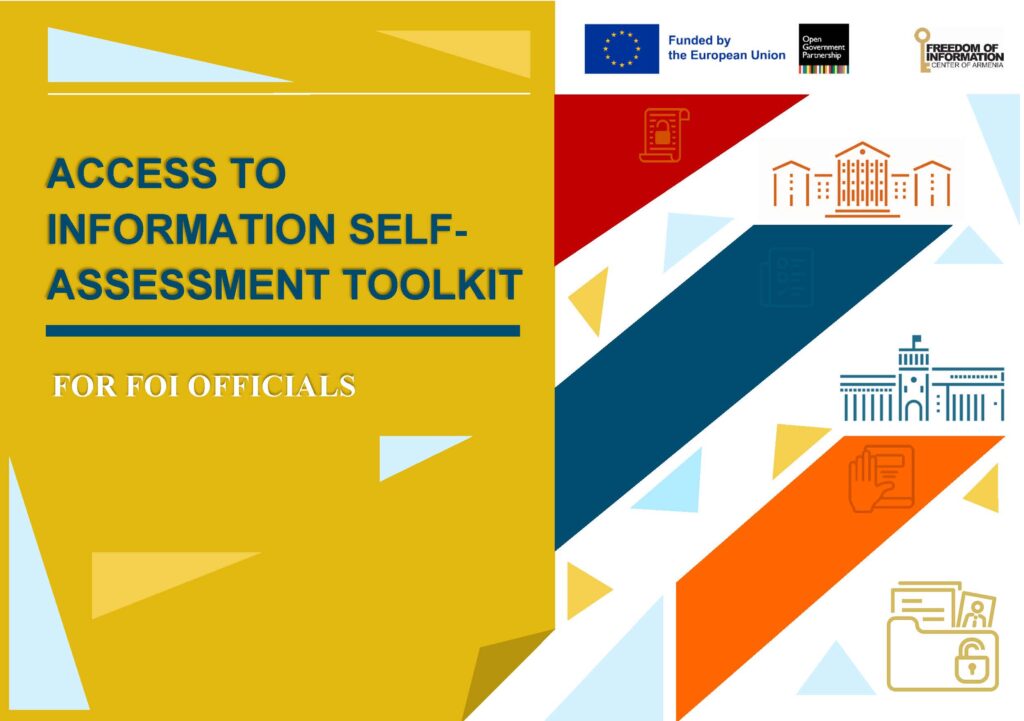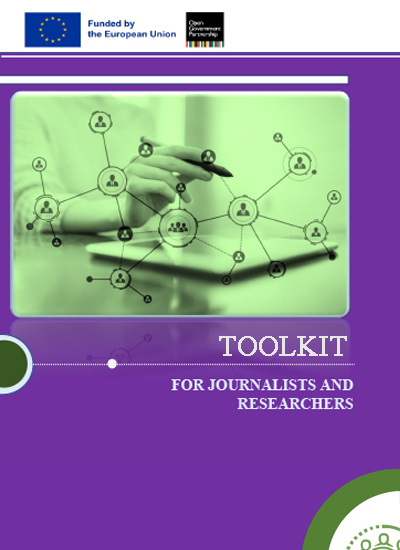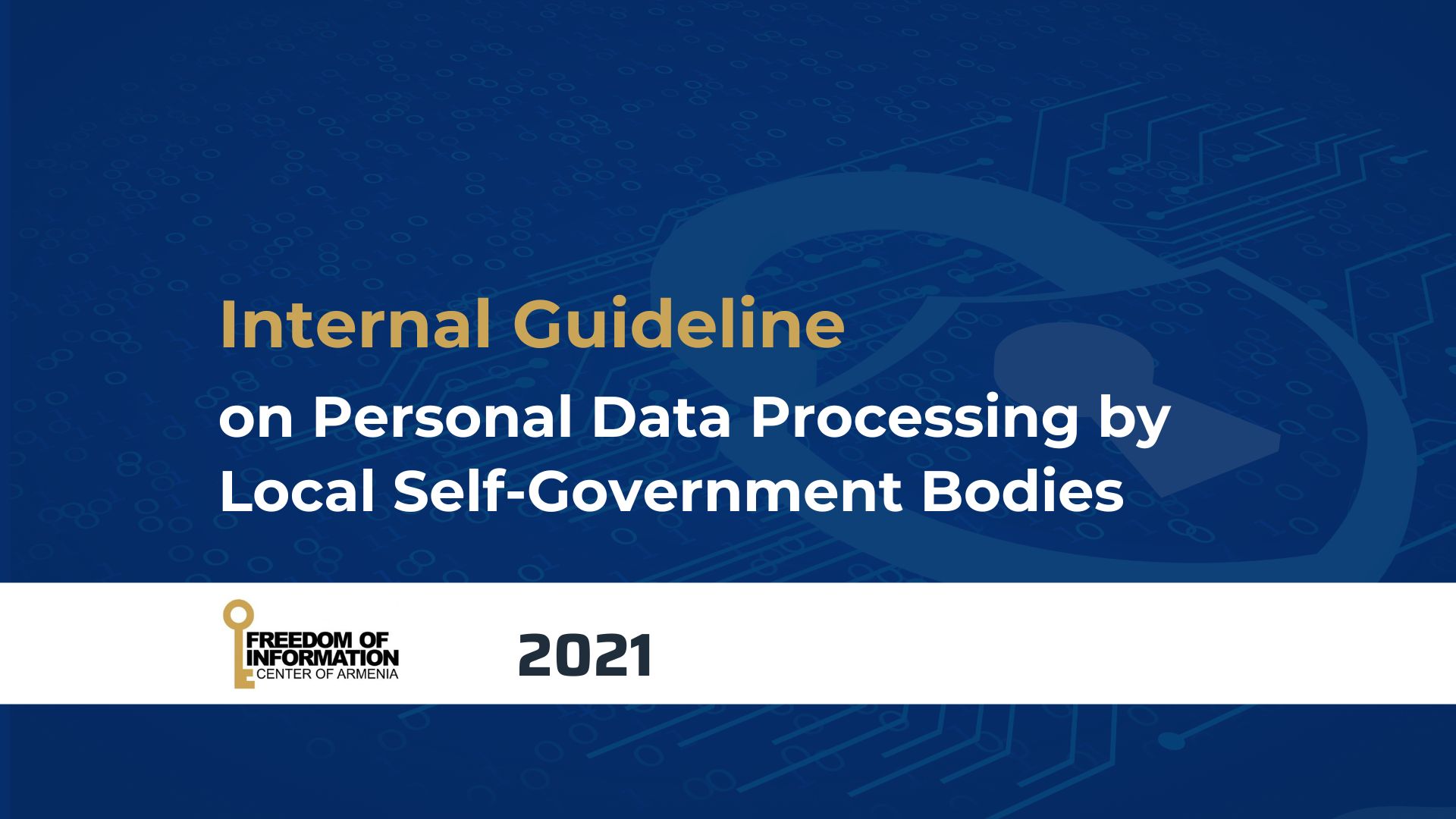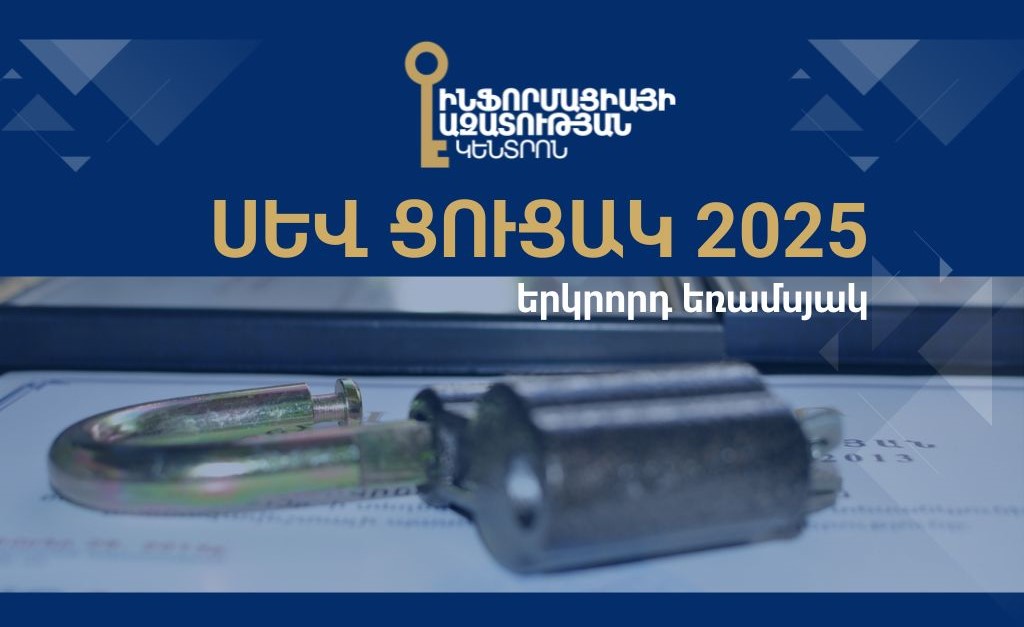The Toolkit is a self-assessment work tool used in the field of access to information (hereinafter ATI). Its goal is to define the minimum criteria/issues, by the compliance of which the information holder can carry out the state assessment of access to information, including:
- to what extent does it have the necessary resources/prerequisites to properly fulfill the access to information responsibilities,
- How adequately does it fulfill the responsibilities in the field of access to information?
Accordingly, the Toolkit accessibly presents the steps that the information holder shall implement to make its activities in the field of access to information comply with the RA Law “On Freedom of Information,” as well as international standards. The main addressees of the Toolkit are:
- State and local self-government bodies,
- state or community institutions, and organizations.
However, to the extent relevant to them, other bodies that are considered information holders by the RA Law “On Freedom of Information” can apply the Toolkit.
The Toolkit is composed of two parts:
1. sections that present the minimum steps the information holder shall take to properly fulfill its responsibilities in the field of access to information,
2. a questionnaire that corresponds to the steps mentioned in each section, and by answering its questions with a simple “yes” or “no,” the
information holder can assess whether it is adequately fulfilling the responsibilities in the field of access to information.
Part 1 of the Toolkit has three sections:
- The first section presents the steps that the information holder shall take to ensure the proper fulfillment of its responsibilities in the field of access to information.
- The second section presents the steps that the information holder shall take when publishing information on the initiative of the information holder (proactive provision of information).
- The third section presents the steps that the information holder shall take upon receiving an inquiry (reactive provision of access to information).
In each section, the steps are presented in the order that is most effective to be carried out. By the terms “information holder” or “state bodies” used in the Toolkit, all the addressees of the Toolkit are meant, i.e., state and local self-government bodies, state or
community institutions and organizations.
This Toolkit is developed and published by the Freedom of Information Center NGO (FOICA) within the “Advanced Access to Information and Beneficial Ownership Transparency in Armenia” project: The Project is supported by the Eastern Partnership: Open Door Grants, Sub-grants provided under the EU for Integrity Programme. The content of the Toolkit is solely the responsibility of the FOICA and does not necessarily reflect the views of the European Union.











